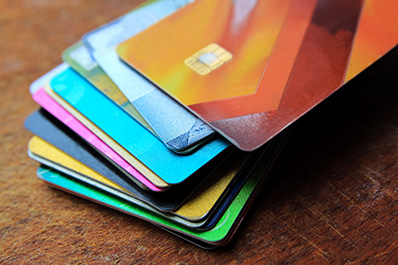
Printable Version in English
Printable Version en Español
Credit and Debit Card Billing Issues
What You Need to Know
People are making more purchases than ever with credit and debit cards. The more you use your cards, the more likely it is you will experience a credit or debit billing issue, such as an unauthorized purchase, a charge for an incorrect amount, or a returned item not properly credited to your account.
What can you do to protect your money? There are federal laws in place to assist consumers and limit their liability for debit and credit billing issues – Regulation E and the Electronic Funds Transfer Act (EFTA) for debit cards and Regulation Z and the Truth in Lending Act (TILA) for credit cards. (Regulation E and EFTA will provide protections for prepaid accounts effective April 1, 2019.)
| Event | Consumers Responsibility | Consumers Liability |
|---|---|---|
| Your debit card or personal identification number (PIN) is lost or stolen. | Notify the bank within two business days after learning of the loss or theft. Notify the bank within 60 days after you received your statement showing the first unauthorized transfer. Notify the bank more than 60 days after you received your statement showing first unauthorized transfer. | You will be responsible for no more than $50 of the unauthorized transfer. You may be responsible for as much as $500 of the unauthorized transfer. You may be responsible for all of the unauthorized transfer that the institution establishes would not have occurred had the consumer notified the institution within the 60-day period. |
| Your debit card or PIN is not lost or stolen, but the card number is used for unauthorized transactions. | Notify the bank within 60 calendar days after you receive the statement on which the unauthorized transfer first appears. Notify the bank more than 60 days after you received your statement on which the unauthorized transfer first appears. | You will not be responsible for any amount of the unauthorized transfers. You may be responsible for all of the unauthorized transfer that the institution establishes would not have occurred had the consumer notified the institution within the 60-day period. |
Regulation E provides protections for consumers who transfer funds through electronic methods. These methods include point-of-sale (POS) and automated teller machine (ATM) transactions as well as automatic withdrawals from your bank account. Consumers’ responsibilities and potential liabilities for unauthorized transactions under Regulation E are outlined in the chart above.
| Event | Consumers Responsibility | Consumers Liability |
|---|---|---|
| Your credit card is lost or stolen. | Notify the card issuer as soon as you are aware that the card is missing. | You may be responsible for no more than $50 of the unauthorized charges. If unauthorized/fraudulent charges derive from telephone, online, or mail transactions your liability is $0. |
| You notice unauthorized charges (for example, your card was charged for goods or services not received, the merchant charged an incorrect amount, or the merchant charged your card twice). | Notify the card issuer within 60 days from the receipt of your billing statement showing any unauthorized charges or billing errors. | You may be responsible for no more than $50 of unauthorized charges. |
| Your credit card number is stolen. | Notify the card issuer as soon as you are aware that the card is missing. | You may be responsible for no more than $50 of unauthorized charges. |
Regulation Z and TILA provide safeguards against inaccurate and unauthorized charges to open-end and revolving credit accounts, including credit cards. According to Regulation Z, you do not pay the disputed amount while the transaction is under investigation by the bank; however, you are required to make payments on any portion of the bill that is not in dispute, including finance charges. Consumers’ responsibilities under Regulation Z and TILA are outlined in the chart above.
Additionally, many credit card issuers have zero-liability policies, meaning that customers typically do not pay for unauthorized transactions, so contact your credit card issuer as soon as you discover any.
Be sure to review your credit card and bank statements regularly to catch billing errors and unauthorized transactions as quickly as possible. It’s also a good idea to review your credit reports regularly for inaccurate information. You are entitled to a free copy of your credit report from each of the three major credit bureaus once every 12 months. To order your free annual reports, go to AnnualCreditReport.com or call toll-free 1-877-322-8228.
To learn more about debit and credit card billing issues and dispute resolution visit the following sites:
- Consumer Protection Topics - Billing Errors and Resolution
- Federal Trade Commission - Online Privacy and Security
- Federal Trade Commission - Disputing Billing Errors
If you have any concerns with a billing issue or dispute resolution with your card issuer or bank, contact the FDIC through our Customer Assistance Form, or call 1-877-ASK-FDIC (1-877-275-3342).
For more help or information, go to FDIC.gov or call the FDIC toll-free at 1-877-ASK-FDIC (1-877-275-3342). Please send your story ideas or comments to ConsumerNews@fdic.gov.
